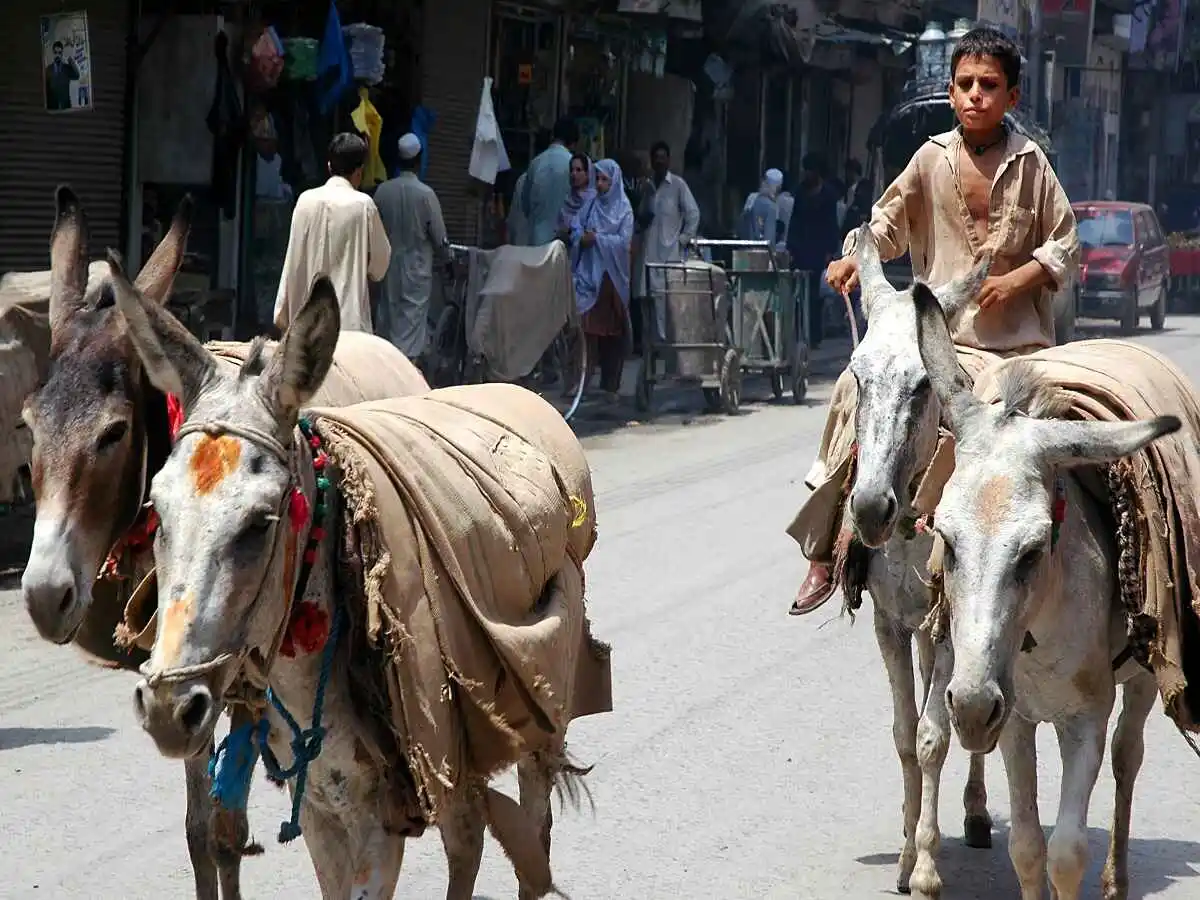Business News
Donkeys worth Rs 200,000! How China's multi-billion-dollar ejiao industry hitting Pakistan’s poor hard
.png)
3 min read | Updated on June 08, 2025, 12:58 IST
SUMMARY
Donkey prices in Pakistan have skyrocketed due to soaring demand from China for donkey hides used in the production of ejiao, a traditional Chinese medicine believed to offer various health benefits.

The reason for this sudden surge in donkey prices has been a growing demand from China to source these animals from Pakistan.
Donkey prices in Pakistan have soared in recent months due to the growing demand from China for the animals' hides used in traditional medicine, leaving many poor workers who rely on donkeys for their livelihood struggling to cope.
The sharp rise in prices is linked to China’s booming ejiao industry, a multi-billion-dollar market for a gelatin made from donkey skin.
Used in traditional Chinese medicine, ejiao is believed to offer health benefits including improved immunity, reduced fatigue, and treatment for anaemia and tumours.
“Donkey hides have become a global trade now because in China the demand is higher than the supply,” said Dr Guo Jing Feng, who runs the Pu-Sheng Medical Center in Karachi. “And it will grow to meet the demand for ejiao.”
In Pakistan, where an estimated 5.9 million donkeys support industries ranging from transport and agriculture to waste collection and brick kilns, the impact is being felt on the ground.
In markets like Karachi’s Lyari, the largest donkey market in the country, prices for healthy animals now exceed Rs 150,000, a fivefold increase from just a few years ago.
Abdul Rasheed, a donkey cart owner in Karachi, lost his animal in an accident last week.
“A donkey now costs as high as Rs 2,00,000 in the market, way too high than the Rs 30,000 I paid to buy...eight years ago,” said Rasheed, whose annual income is under Rs 400,000. “Where can I get that sort of money?”
The rising prices have been fuelled by interest from private Chinese companies seeking to export Pakistani donkeys to meet ejiao production needs. According to a report, ejiao production has grown 160% in the past five years, which effectively means millions of donkey skins are required to keep up with the demand.
In April, a Chinese delegation expressed interest in setting up donkey farms in Pakistan during meetings with Federal Minister for National Food Security and Research Rana Tanveer Hussain.
A ministry spokesperson said such initiatives would benefit the economy by generating employment in donkey care, feeding, and management.
Dr Asal Khan, director general of livestock and dairy development in Khyber Pakhtunkhwa province, said Chinese proposals to buy donkeys for export have not been approved.
“These proposals were from private companies and did not mature,” he said. “Their main purpose is to buy donkeys and transport them to China for their hides, and we are not allowing that.”
Donkey traders say Chinese buyers are sometimes willing to purchase weak or unhealthy animals at lower prices, as the hide of a donkey is not influenced by the overall condition of the animal.
By signing up you agree to Upstox’s Terms & Conditions
About The Author
Next Story

